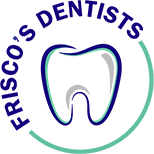How Can I Tell If My Tooth is Decaying?
One of the leading causes of tooth pain is tooth decay, which is the destruction of your tooth’s enamel. Those faced with tooth decay often miss the warning signs that their teeth are becoming permanently damaged, and do not seek treatment early enough to save the affected tooth. Keep reading to learn the signs of tooth decay so you can seek treatment as soon as possible.
The 6 Stages of Tooth Decay
Stage 1: White Spots
Tooth decay begins when white, chalky areas appear on the surface of your teeth. These spots are due to a loss of calcium and a build-up of plaque on your teeth. Bacteria within the plaque will begin to metabolize sugars from the food that you consume, and this build-up of acid causes enamel to weaken and deteriorate.
At this stage, tooth decay can potentially be reversed with proper treatment from your dentist.
Stage 2: Enamel Decay
Once your enamel is weakened, it will begin to break underneath the surface of your tooth. Your teeth may fail to restore the proper minerals and enamel needed to protect the tooth, resulting in a lesion forming on it. Eventually, the surface of your tooth can break, which is irreversible and is cause for immediate dental attention.
Stage 3: Dentin Decay
The dentin acts as the connective tissue in your tooth between the enamel and pulp. When decay moves through the enamel and deeper into the teeth, pain levels intensify and the lesion formed on the outer portion of your tooth will reach the dentin.
At this stage, your infected tooth may cause you sharp pain, and a dental cavity may form. The best treatment option is a dental filling to restore the tooth and prevent tooth loss.
Stage 4: Involvement of the Pulp
As mentioned, the pulp is near the center of your tooth, and it’s made up of living tissue and cells (referred to as odontoblasts). Once the dentin is damaged, the pulp of your tooth is at risk for infection, and pus may form on the tooth.
This can kill blood vessels and nerves in the tooth — causing a toothache and constant pain. A root canal would be needed at this stage of decay.
Stage 5: Abscess Formation
Abscess formation is the final stage of tooth decay — and it is the most painful. Once infection reaches past your pulp to the root of your tooth, you are at risk of developing an infection in the conjoining bones around your tooth.
At this stage, the gums and tongue often swell, putting you at risk for other diseases and affecting speech patterns. Oral surgery is generally needed at this point
Stage 6: Tooth Loss
If an abscess forms on your tooth and is left untreated, your tooth will be lost and will most likely need to be extracted. There is no way to repair a tooth once it has decayed.
Spotting Decay
The following are general signs of tooth decay in adults and children:
- Moderate to bad breath.
- Tooth sensitivity.
- Headaches or jaw aches.
- A constant metallic or unpleasant taste in the mouth.
Preventing Tooth Decay
Kids take the top spot for tooth decay mainly due to how much sugar they consume — followed by senior citizens. Afraid to let your kids (or grandparents) eat too much candy and rot their teeth? According to the European Academy of Pediatric Dentistry, sugar-free lollipops that contain licorice root extract “significantly reduced the bacteria that causes tooth decay,” especially with preschool children who are at high-risk for tooth decay
However, for the most part, the best way to prevent tooth decay and tooth loss is by keeping up with a dental hygiene routine that includes brushing 2-3 times per day, flossing, and visiting your dentist regularly. When you choose Frisco's Dentists, we treat you like family. We’ll help ease your tensions and treat your cavity as quickly as possible. Contact us today to set up an appointment.


